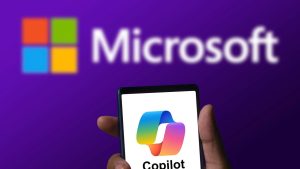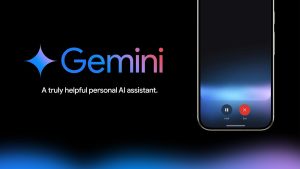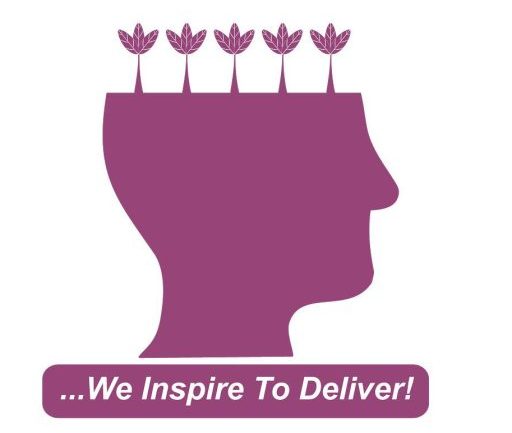Hey, Tech enthusiast! Your Daily Dose of Tech This Friday is here @DawentsIT …We Inspire To Deliver!
Your Daily Dose Of Technology News – September 12, 2025.
1. Apple Unveils Mixed-Reality Vision Pro 2 and New iPhone Lineup:

– Apple held its late–week product event in Cupertino. The company introduced the Vision Pro 2 headset with a thinner design, improved battery life (up to 6 hours on a single charge with active use), higher-resolution micro-OLED displays, upgraded eye- and hand-tracking, and a new M3R chip optimized for spatial computing and energy efficiency. New software features focus on mixed-reality productivity: persistent spatial workspaces that sync with macOS, multi-app windows, and improved “continuity” integrations so iPads and Macs can extend into Vision spaces. Apple emphasized safety/privacy controls for spatial data and local-first processing for eye/gesture inputs.
– Apple also announced the iPhone 17 and iPhone 17 Pro. Key changes include periscope telephoto on the Pro Max for improved long-range zoom, a new energy-efficient A19 Bionic, brighter OLED panels with variable refresh down to 1Hz, and substantial camera software improvements (computational HDR, better low-light video). Battery life improvements and USB-C (following EU rules) were confirmed. iOS 19 release date was set for later September with focus on generative-AI features (on-device assistant, improved AI photo editing tools) and expanded App Privacy controls.
– Accessories and services: Apple introduced a new MagSafe Battery Pack II and expanded Apple One+ bundles to include Apple Intelligence credits. Pricing and regional availability were announced, with preorders starting next week.
In Other News:
2. Global Chip Industry — TSMC, Intel, Samsung Moves:
– TSMC: Reported capex guidance updates and highlighted 3nm/2nm node volume ramp plans. TSMC reaffirmed foundry leadership for high-performance mobile and AI accelerators.
– Intel: Announced new Meteor Lake refresh for client chips and previewed Falcon Cove data-center accelerators for heterogeneous compute, targeting AI inference and networking offload.
– Samsung: Showcased progress on next-gen memory (HBM5) and advanced logic node yield improvements. Industry analysts noted ongoing supply-demand tightness for AI-class chips.
3. Meta’s Threads Reaches New Milestones; Meta Launches “MetaAI Studio”:

– Threads reported renewed user growth after integrating cross-posting with Instagram and rolling out richer AI summaries and conversation threading. Meta announced MetaAI Studio, an enterprise-facing suite to fine-tune LlamaX models and deploy them privately across Meta’s cloud or customer infra. Studio includes data connectors, analytics, safety tooling, and moderation controls. Meta also highlighted open research around low-cost multimodal models.
– Privacy advocates remain cautious, urging stronger oversight of personalized recommendation models.
4. Nvidia Reports Record Revenue; Launches Grace Blackwell Next-Gen AI Server Chips:
– Nvidia’s quarterly earnings beat estimates, driven by data-center GPU sales and large language model training demand. The company announced the Grace Blackwell line of next-gen Arm-based AI server CPUs with integrated NVLink and new memory coherency features designed to scale with Hopper/Blackwell GPUs. Nvidia positioned Grace Blackwell as a competitor to traditional x86 server CPUs for AI workloads, touting large memory footprints and power efficiency.
– Nvidia also expanded its AI developer ecosystem with updates to CUDA, cuDNN, and new libraries for multimodal training and inference optimization. Shares reacted positively in after-hours trading.
5. EU Passes Landmark AI Regulation Enforcement Package:
– The European Parliament and Council finalized key enforcement measures to the EU AI Act, effective next year. The package tightens obligations on high-risk AI systems (medical devices, critical infrastructure, biometric ID) and introduces stronger fines and mandatory independent audits. New provisions require model provenance disclosure for large-scale generative models and compulsory red-team testing for safety-critical deployments.
– The rules also create a certification pathway for “trustworthy AI” products and expand consumer rights to explanation and contestability where AI affects significant interests. Tech industry groups warned about compliance costs; privacy advocates praised the move. Several national regulators will publish implementation guidance in coming months.
Odds And Ends:
6. Microsoft and AWS Make Cloud AI Announcements:

– Microsoft: Announced Copilot Studio updates with better model orchestration, cost controls, and new vertical templates for healthcare, finance, and legal. Microsoft reinforced partnerships with OpenAI and unveiled a compliance-focused on-prem version of Copilot for regulated industries.
– AWS: Announced the next-gen Trainium 3 chips and expanded its Bedrock service with managed multimodal models and a simplified inference pricing model. AWS also launched “SageMaker Secure Vault” — an enterprise feature for private model training with customer-managed encryption and auditing.
7. OpenAI Launches GPT-5.1 with Multimodal and “Toolbox” Features:
– OpenAI released GPT-5.1, a multimodal foundation model with sharpened long-context handling (up to 2 million tokens in high-cost mode for enterprise), improved reasoning and code generation, and stronger safety filters. A major highlight is the “Toolbox” system enabling models to call verified external tools and APIs (browsers, calculation engines, enterprise data connectors) with audit logs and permission gates. OpenAI emphasized enterprise deployments (Azure, API tiers) and a new on-prem/edge offering for regulated customers.
– Pricing changes: usage tiers were restructured to add a high-performance enterprise tier with per-instance flat pricing. OpenAI also announced expanded partnerships with major cloud providers and a new fine-tuning marketplace for vetted institutions.
– The release drew reactions: optimism about productivity gains, plus renewed debate about model risks, hallucinations in domain-specific uses, and regulatory scrutiny from several countries asking for transparency about training data.
8. Google Integrates Gemini Into Workspace and Launches ‘Gemini Assist’:

– Google rolled Gemini deeply into Workspace apps (Gmail, Docs, Sheets, Slides) as “Gemini Assist,” a subscription AI feature for Workspace Plus/Enterprise customers. Capabilities include drafting and editing, data summarization, code suggestions, and on-demand multimodal search. Google emphasized context-aware privacy controls and enterprise data connectors that keep customer content in corporate clouds where requested.
– Separately, Google updated its Gemini models with improved reasoning and a new hallucination-detection API for enterprise customers. Regulators continue to probe Google’s training-data practices; Google says it uses a mix of licensed, public, and proprietary data with filtering.
9. Regulation, Security, and Privacy Stories:
– A coordinated global action: the U.S., EU, UK, and several partners issued a joint statement urging AI companies to adopt risk-management frameworks, transparency for model capabilities, and export controls for dual-use advanced AI chips. The statement signals increased geopolitical coordination on AI governance.
– Major vulnerabilities disclosed: A new widespread zero-day in a popular enterprise VPN appliance prompted emergency patches and guidance from vendors. Several ransomware groups exploited unpatched instances, leading to high-profile incidents in healthcare and logistics.
– Biometric and facial recognition litigation: Class-action suits expanded in the U.S. against several tech vendors over alleged misuse of face-recognition in retail and public surveillance.
10. Consumer Tech and Mobility:
– Tesla released a software update rolling out improved full self-driving (beta) features to more users under a new driver-monitoring compliance profile. Regulators in several countries requested more safety data.
– Major automakers announced expanded partnerships with chip vendors and software firms to accelerate EV and in-car AI features, including OTA updates for advanced driver assistance.
– Several consumer device makers highlighted battery and charging improvements at IFA and regional trade shows this week.
What To Watch Next (near-term):
– Apple preorders and early reviews for Vision Pro 2 and iPhone 17 will set the tone for Q4 consumer device demand.
– Reactions and guidance from major AI model vendors after EU enforcement rules finalize; potential follow-up legislation elsewhere.
– Nvidia and chipmakers’ detailed roadmaps and customer adoption metrics for new server chips (Grace Blackwell, Trainium 3).
– Any regulatory inquiries or subpoenas following the GPT-5.1 launch, and details on OpenAI’s Toolbox safety controls.
These stories represent the leading developments and trends shaping the technology landscape as of 2025. If you need a summary on any specific topic or more detailed information on emerging tech trends, feel free to ask us @DawentsIT or visit our website at www.dawentsit.com
Follow us for updated news, articles, and videos. Read more on http://www.dawentsit.com/ #Technology #DawentsIT #TechnologyNews #Tech #TSMC #Samsung #Intel #NVIDIA #Apple #AI #AR #VR #iPhone #AllThingsTechnologyNews #AllThingsTechnologyNewsToday #WeInspireToDeliver
